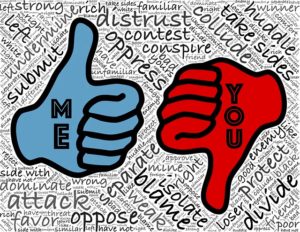Ben Richards
Are you a racist?
Are you a sexist?
Are you homophobic?
Do you hate poor people and the disabled?
In Australia, if you hold conservative viewpoints, the above assumptions are made about you by left-leaning politicians, teachers, family members and friends. Like it or not, this is your cross to bear and the handicap you have to overcome when talking about political issues from a conservative perspective.
 This series is designed to give you the tools you need to navigate what is an increasingly left-dominated society with rock-solid conservative ideology, facts and conversational tactics.
This series is designed to give you the tools you need to navigate what is an increasingly left-dominated society with rock-solid conservative ideology, facts and conversational tactics.
It is for changing people’s minds about the stereotypes associated with conservatism.
It’s about YOU opening people’s minds to alternative ideas that make an impact on how they see the world.
Before we start:
When you talk on behalf of conservative principals, there are three fundamental differences you should be aware of between the left and the right.
- Good conservatives think logically, most liberals you talk to think emotionally. This is a big hurdle when discussing political issues with liberals because it’s very hard to change how someone feels about something, even when presented with facts that show otherwise. It also means that disagreeing with liberals will provoke emotional reactions and personal attacks.
- Conservative ideology and policy necessitates an understanding that nothing happens in a bubble. One thing, leads to another and to another and we need to be aware of what those knock-on effects are. Conservatives need to look beyond one idea or policy in isolation and to the big picture.
- One reason liberalism is so ubiquitous in our culture is that their ideas can be summed up and digested in bite-sized chunks that often paint conservatives as evil. For example, income inequality. The liberal line goes, “Rich people have lots of money, the poor do not. If we take money from the people that have it and give it to those who don’t then they won’t be poor any more. If you are against this, you hate poor people.” There is a certain child-like logic to this idea, but it’s ultimately wrong. To explain why it’s wrong can’t be done in 140 characters or less.
Finally, there are two types of people you will talk to about politics where you will need to use the tactics I’m going to outline:
- Most Australians (and people, for that matter) don’t know and more importantly don’t care about the differences in ideology of the major political parties. They care about the issues that effect their day to day lives. How much does it cost to fill my car with petrol to get to work? What’s going to happen to me when I lose my job? How much will it cost me to buy a house? So when talking to someone who isn’t hugely into politics, talk about the issues on these terms.
- The hardcore leftie won’t abandon their philosophy after one conversation, in the same way that you wouldn’t. The best you can do when talking with someone from the other side is make them acknowledge that “YOU AND I ULTIMATELY WANT THE SAME THING, WE JUST DISAGREE ON WHAT THE BEST WAY TO ACHIEVE IT IS.” The left-controlled media and education system do a great hatchet job of demonising right-wingers; getting this concession helps fight back against this demonisation.



